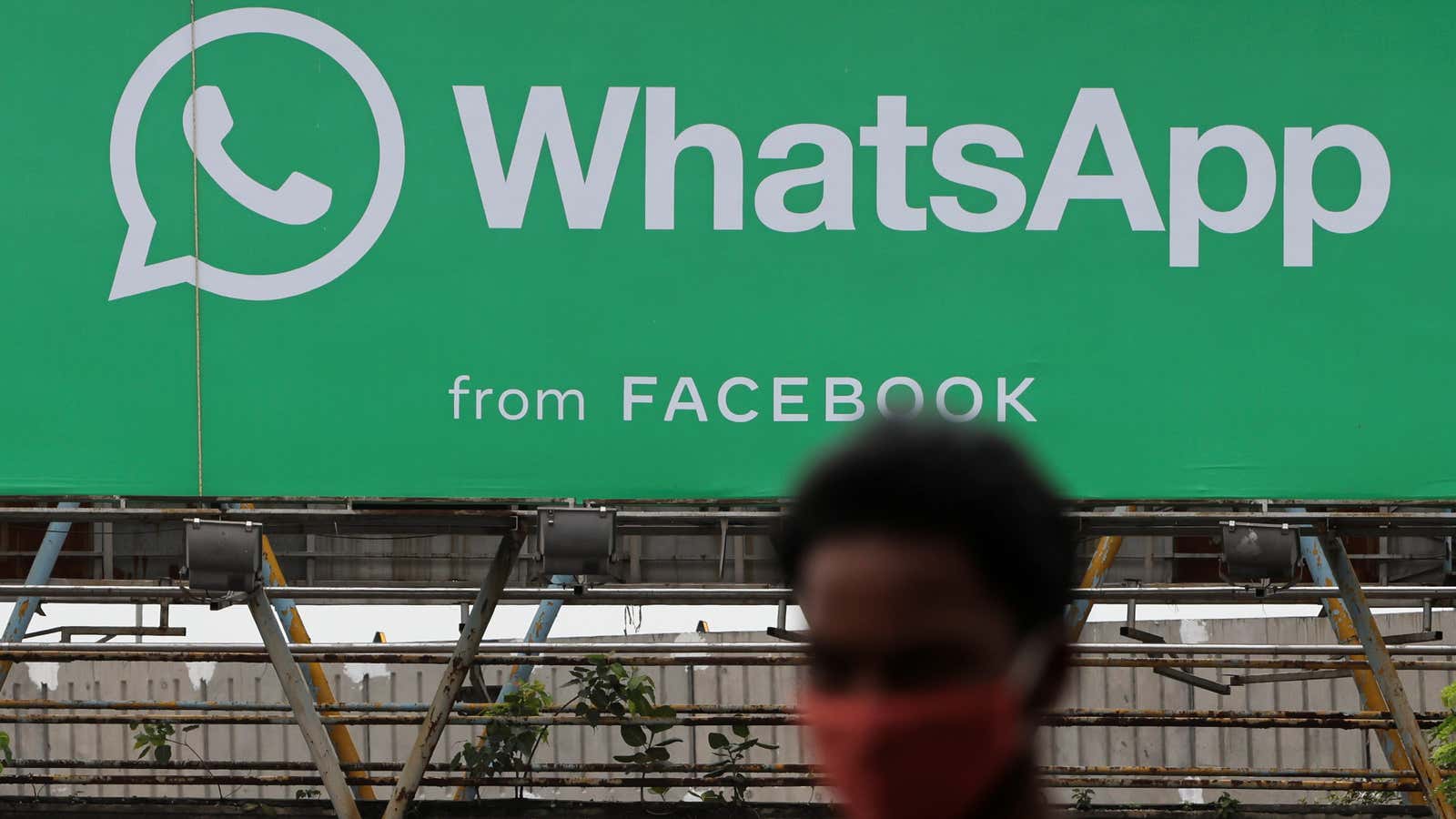Yesterday (Oct. 4), Indians were locked out of WhatsApp for more than six hours.
Although the ubiquitous app was back up in time for Indians to flood their chats with their usual “good morning” messages today, its 400 million users in India—the service’s biggest market by far—were unable to connect with friends, family members, and crucially, business associates, the night before. They, like the rest of the world, couldn’t gain access to Facebook and Instagram either, but WhatsApp is especially important in India.
The business impact of the Facebook outage
Home entrepreneurs and small businesses in India have been using the messaging platform to make sales for years. The separate WhatsApp Business app had 15 million Indian users in mid-2020, and in the last year, several brick-and-mortar shops moved to sell on the app during the pandemic.
Beyond messaging, the sending and receiving of money via WhatsApp Pay also came to a standstill.
Although the outage was late enough in India—from around 9.30pm—not to affect business too dramatically, there were still serious communication issues. Ami Shah, managing director and digital lead at Zandra Healthcare, runs round-the-clock social campaigns with a network of volunteers. “Some of our groups have over 250 people, all of whom were not able to communicate with each other,” she told Quartz.
“You should be using two channels to reach customers consistently,” she adds. “Banks do this beautifully when they send one-time passwords via SMS and on email.”
Of course, unlike WhatsApp, designing a website or deploying text messages don’t come free, which can be a constraint for small businesses with limited budgets. But there are free, independent alternatives like Signal and Telegram they could consider.
Facebook, Messenger, Instagram, and Workplace were also down
Besides WhatsApp, India is also Facebook’s largest audience in the world at 340 million. The world’s largest social media app and its associated Messenger app being down meant there was no immediate alternative to WhatsApp either. All the pages with “DM to place order” in their Instagram bios also remained inaccessible.
Moreover, the snow day wasn’t limited to just external communications. As a result of the outage, Facebook’s internal tools were also down, leaving the firm’s own employees stranded from communicating with each other. The company employs thousands of Indians across five cities.
In July 2017, Facebook signed up more than 800 Indian companies, including legacy firms like telco Bharti Airtel and conglomerate Godrej, as well as startups like online travel agent MakeMyTrip and taxi app Jugnoo, for its Slack-like enterprise communication app Workplace; all of them were likely forced offline.
Once the platforms were up-and-running again, Facebook said, “configuration changes on the backbone routers that coordinate network traffic between our data centers caused issues that interrupted this communication” which in turn “had a cascading effect on the way our data centers communicate, bringing our services to a halt.”
Meanwhile, a lot of damage was done: Facebook’s stock plunged 5% and almost $50 billion was wiped off its value. Co-founder and CEO Mark Zuckerberg lost almost $1 billion for every hour the systems were down.
